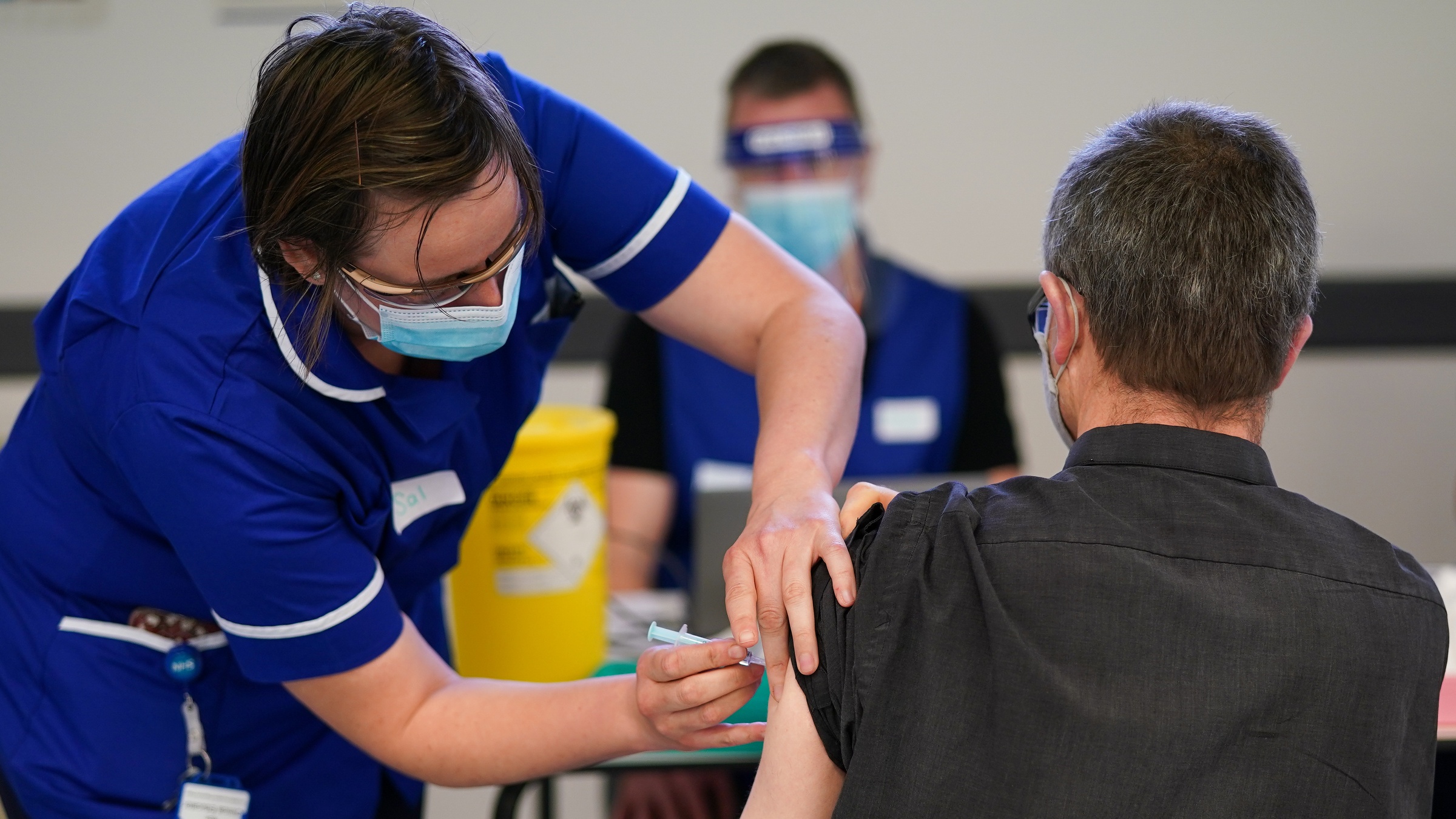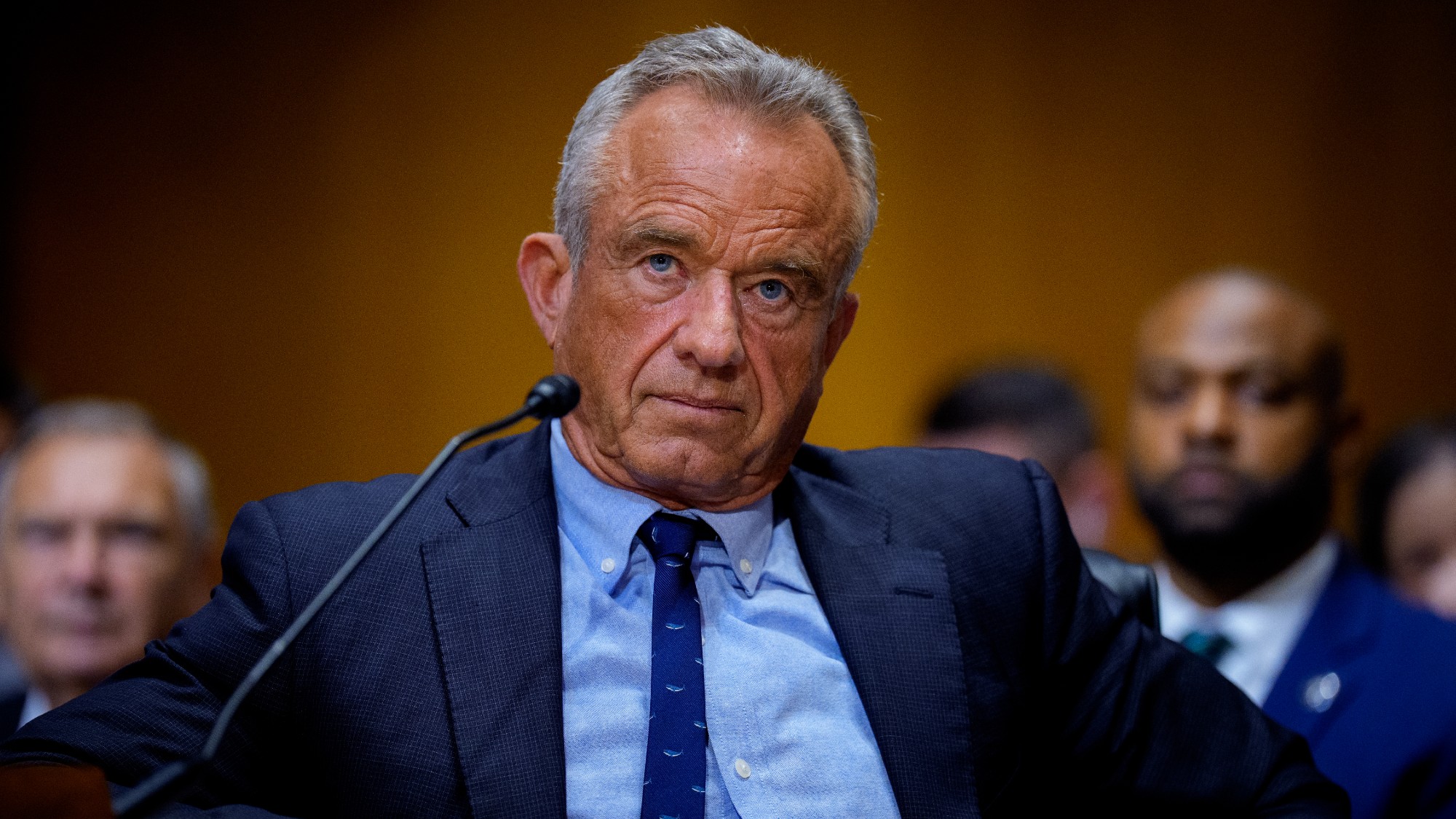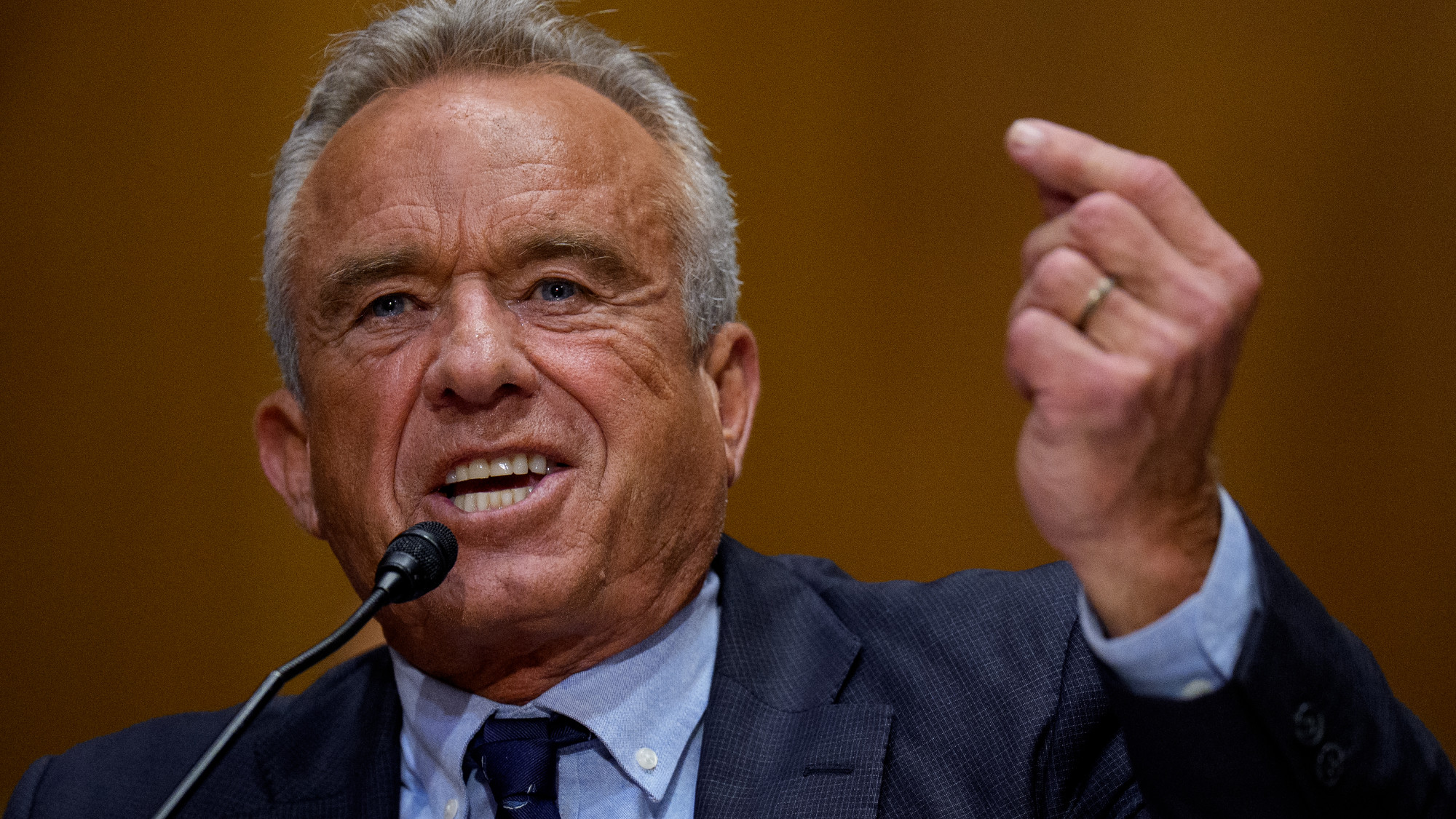Is lockdown or vaccination behind the drop in Covid deaths?
Boris Johnson claims the shutdown has been more effective at reducing Covid-19 than vaccinations

A free daily email with the biggest news stories of the day – and the best features from TheWeek.com
You are now subscribed
Your newsletter sign-up was successful
A leading scientist has accused Boris Johnson of “living in a slightly different world” after the prime minister suggested that a reduction in Covid infections, hospital admissions and deaths had not been achieved by the UK’s vaccination programme, but was instead a result of the national lockdown.
Johnson, speaking the day after the easing of some coronavirus restrictions in England, said that lockdown measures had been “overwhelmingly important” in driving down cases of Covid-19, reports Sky News.
“The numbers are down – of infections and hospitalisations and deaths,” the prime minister told reporters. “But it is very, very important for everybody to understand that the reduction in these numbers… has not been achieved by the vaccination programme.”
The Week
Escape your echo chamber. Get the facts behind the news, plus analysis from multiple perspectives.

Sign up for The Week's Free Newsletters
From our morning news briefing to a weekly Good News Newsletter, get the best of The Week delivered directly to your inbox.
From our morning news briefing to a weekly Good News Newsletter, get the best of The Week delivered directly to your inbox.
Now, Sarah Knapton, science editor of The Telegraph, explains: “Thankfully, less than 24 hours later, science had proved the prime minister wrong.”
The paper points to new research from NHS England and the University of Manchester that shows a “stark difference in cases, admissions and deaths for elderly people who had been vaccinated compared to those who had not”.
The results showed that “far from having little impact, the rate of Covid-related hospital admissions fell by 75% in vaccinated 80 to 83-year-olds within 35 to 41 days of their first dose of the Pfizer jab. The rate of people getting Covid dropped by 70%, with the number of positive tests falling from 15.3 per 100,000 people to 4.6.”
The authors of the study concluded that “the nationwide vaccination of older adults in England with the [Pfizer] vaccine reduced the burden of Covid-19.”
A free daily email with the biggest news stories of the day – and the best features from TheWeek.com
In a separate study last week, Imperial College London researchers indicated the vaccination roll-out was “breaking the link” between infections, deaths and hospital admissions, The Times reports. Comparing infections, deaths and hospital admissions, Imperial’s React study observed “fewer deaths per infection” than they would have expected based on recent prior months of the study.
Scientists from the study said: “We think that this is a signal of how the vaccination programme is breaking the link, the previously strong link, between the pattern of infections and the patterns of deaths and hospitalisations.”
Tim Spector, professor of genetic epidemiology at King’s College London and the lead scientist on the Zoe Covid Symptom Study app, said he had been “quite surprised” by Johnson’s comments, and accusing him of “living in a slightly different world”.
“The vaccination programme has been hugely successful and anyone who says it isn’t really isn’t looking at the data,” he said. “Even last summer we were still seeing cases in care homes, and hospitals outbreaks. And by vaccinating hospital staff and the elderly, we broke that really deadly cycle.
“So there’s absolutely no doubt in my mind that the drop in rates is mainly due to the vaccination,” he told The Telegraph.
But Johnson is right in suggesting that vaccination alone can’t be relied upon to stop the spread of the disease as “no single measure to prevent the spread of coronavirus is 100% effective, and that includes vaccines”, the BBC says.
Although vaccines are the “most powerful weapon in our Covid-19 armoury”, with some vaccines more than 90% effective at preventing serious illness, “no vaccine is ever 100% and there is a chance we might catch the virus or pass it on after our jab”, the broadcaster adds.
One way of thinking about the raft of measures needed to effectively control the spread of the virus is the “Swiss cheese respiratory pandemic defence model”, first used by Ian Mackay, a virologist at the University of Queensland in Australia.
We have a range of responses at our disposal to help control the virus – but no method will ever be completely effective. Each measure “has holes”, explains the BBC, “representing the measure’s flaws – which allow the virus to find a way through.”
It is only through using a number of measures – for example, social distancing, lockdowns, wearing masks, and, of course, a robust vaccination system – that we can significantly reduce transmission of the disease.
Sorcha Bradley is a writer at The Week and a regular on “The Week Unwrapped” podcast. She worked at The Week magazine for a year and a half before taking up her current role with the digital team, where she mostly covers UK current affairs and politics. Before joining The Week, Sorcha worked at slow-news start-up Tortoise Media. She has also written for Sky News, The Sunday Times, the London Evening Standard and Grazia magazine, among other publications. She has a master’s in newspaper journalism from City, University of London, where she specialised in political journalism.
-
 How the FCC’s ‘equal time’ rule works
How the FCC’s ‘equal time’ rule worksIn the Spotlight The law is at the heart of the Colbert-CBS conflict
-
 What is the endgame in the DHS shutdown?
What is the endgame in the DHS shutdown?Today’s Big Question Democrats want to rein in ICE’s immigration crackdown
-
 ‘Poor time management isn’t just an inconvenience’
‘Poor time management isn’t just an inconvenience’Instant Opinion Opinion, comment and editorials of the day
-
 How corrupt is the UK?
How corrupt is the UK?The Explainer Decline in standards ‘risks becoming a defining feature of our political culture’ as Britain falls to lowest ever score on global index
-
 Childhood vaccines: RFK Jr. escalates his war
Childhood vaccines: RFK Jr. escalates his warFeature The health secretary cut the number of recommended childhood vaccines from 17 to 11
-
 The high street: Britain’s next political battleground?
The high street: Britain’s next political battleground?In the Spotlight Mass closure of shops and influx of organised crime are fuelling voter anger, and offer an opening for Reform UK
-
 Is a Reform-Tory pact becoming more likely?
Is a Reform-Tory pact becoming more likely?Today’s Big Question Nigel Farage’s party is ahead in the polls but still falls well short of a Commons majority, while Conservatives are still losing MPs to Reform
-
 Asylum hotels: everything you need to know
Asylum hotels: everything you need to knowThe Explainer Using hotels to house asylum seekers has proved extremely unpopular. Why, and what can the government do about it?
-
 Taking the low road: why the SNP is still standing strong
Taking the low road: why the SNP is still standing strongTalking Point Party is on track for a fifth consecutive victory in May’s Holyrood election, despite controversies and plummeting support
-
 Behind the ‘Boriswave’: Farage plans to scrap indefinite leave to remain
Behind the ‘Boriswave’: Farage plans to scrap indefinite leave to remainThe Explainer The problem of the post-Brexit immigration surge – and Reform’s radical solution
-
 RFK Jr.’s anti-vaccine crusade comes under fire
RFK Jr.’s anti-vaccine crusade comes under fireFeature Robert F. Kennedy Jr. faced a heated hearing as senators accused him of lying and spreading chaos